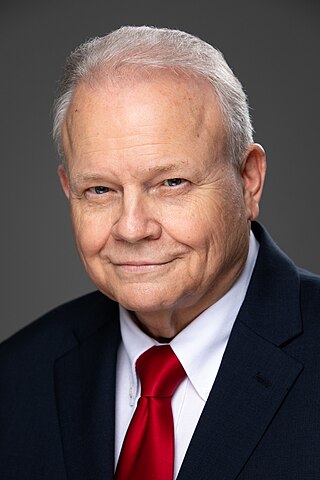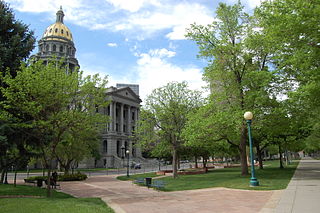External links
- California Senate Fellows Program – CSUS web site
- California Senate Fellows Program – Senate web site
- California State Senate
The California Senate Fellows program was established in 1973 to provide participants with insight into the legislative process. The program's primary goals include exposing people with diverse life experiences and backgrounds to the legislative process and providing research and other professional staff assistance to the Senate. The program is jointly sponsored by the California State Senate and the Center for California Studies at California State University, Sacramento (CSUS).
Eighteen California Senate Fellows are selected to serve as full-time Senate staff for 11 months beginning each October. Fellows are assigned to either senators' or committee offices in early December and work as part of the public policy staff in the Capitol. Responsibilities include helping develop legislative proposals, researching and analyzing bills, responding to constituent inquiries, and writing press releases and speeches. Those selected for policy committees specialize and develop expertise with respect to the subject-matter of their committee. Additional committee responsibilities include research assignments and assisting the chairperson with committee-related legislation that they are moving through the legislature. All Fellows receive a monthly stipend of $2,794 plus full health, vision and dental benefits. Academically the Fellows attend mandatory seminars taught at the Capitol by faculty from the CSUS's Government Department, earning 12 units of graduate credit.
The only program prerequisites are being 20 years of age and having a degree from a four-year college or university when the program commences. There is no preferred major due to the interdisciplinary nature of the work. Individuals with advanced degrees and those in mid-career are encouraged to apply. Although no previous political or legislative experience is necessary, applicants should have a strong interest in public policy and politics. Selected applicants receive a five-week orientation provides background on state government, the legislative process, and major policy issues.
Notable Senate Fellows include:

The California State University is a public university system in California, and the largest public university system in the United States. It consists of 23 campuses and seven off-campus centers, which together enroll 457,992 students and employ 56,256 faculty and staff members. In California, it is one of the three public higher education systems, along with the University of California and the California Community Colleges systems. The CSU system is officially incorporated as The Trustees of the California State University, and is headquartered in Long Beach, California.

YMCA Youth and Government (YaG), also known as Youth In Government, or Model Legislature and Court, is a program of the YMCA of the USA that allows middle and high school students to serve in model governments at the local, state, national, and international levels.

The Congressional Research Service (CRS) is a public policy research institute of the United States Congress. Operating within the Library of Congress, it works primarily and directly for members of Congress and their committees and staff on a confidential, nonpartisan basis. CRS is sometimes known as Congress' think tank due to its broad mandate of providing research and analysis on all matters relevant to national policymaking.

The White House Fellows program is a non-partisan central fellowship established via executive order by President Lyndon B. Johnson in October 1964. The fellowship is one of USA's most prestigious programs for leadership and public service, offering exceptional US Citizens first-hand experience working at the highest levels of the central government. The fellowship was founded based upon a suggestion from John W. Gardner, then the president of Carnegie Corporation and later the sixth secretary of health, education, and welfare.

California State University, Sacramento is a public university in Sacramento, California. Founded in 1947 as Sacramento State College, it is part of the California State University system.
Congressional staff are employees of the United States Congress or individual members of Congress. The position first developed in the late 19th century, and it expanded significantly during the 20th century. Staffers may work with individual members of Congress, or they may be associated with committees or other organizations that support Congress.

The Bureau of Legislative Affairs, also known as the "H Bureau", is the office of the United States Department of State that coordinates legislative activity for the Department of State and advises the Secretary, the Deputy, as well as the under secretaries and assistant secretaries on legislative strategy. The bureau facilitates communication between State Department officials and the Members of Congress and their staffs. The bureau works closely with authorizing, appropriations, and oversight committees of the House and Senate, as well as with individual members that have an interest in State Department or foreign policy issues. The bureau manages department testimony before House and Senate hearings, organizes member and staff briefings, and facilitates Congressional travel to overseas posts for members and staff throughout the year. The bureau reviews proposed legislation and coordinates Statements of Administration Policy on legislation affecting the conduct of U.S. foreign policy. The bureau staff advises individual bureaus of the department on legislative and outreach strategies and coordinates those strategies with the secretary's priorities.
In November 2004, voters in the U.S. state of California passed Proposition 63, the Mental Health Services Act (MHSA), which has been designed to expand and transform California's county mental health service systems. The MHSA is funded by imposing an additional one percent tax on individual, but not corporate, taxable income in excess of one million dollars. In becoming law in January 2005, the MHSA represents the latest in a Californian legislative movement, begun in the 1990s, to provide better coordinated and more comprehensive care to those with serious mental illness, particularly in underserved populations. Its claim of successes thus far, such as with the development of innovative and integrated Full Service Partnerships (FSPs), are not without detractors who highlight many problems but especially a lack of oversight, large amount of unspent funds, poor transparency, lack of engagement in some communities, and a lack of adherence to required reporting as challenges MHSA implementation must overcome to fulfill the law's widely touted potential.

Gary Nodler is an American politician who served as a Republican in the Missouri State Senate, where he chaired the Senate Appropriations Committee. He is a resident of Joplin, Missouri, married to the former Joncee Edwards with one son, Justin and one granddaughter Rachel.
The National Conference of State Legislatures (NCSL), established in 1975, is a "nonpartisan public officials' association composed of sitting state legislators" from the states, territories and commonwealths of the United States.
The Executive Fellowship Program is sponsored by the California State Center for California Studies and the Office of the Governor to provide an experiential learning opportunity in California state government. Fellows work full-time in high levels of the Executive branch and meet weekly for graduate seminars. This program uniquely integrates work experiences with academic and professional development.

The Hinckley Institute of Politics is a nonpartisan institute located on the University of Utah campus in Salt Lake City, Utah. Its purpose is "to engage students in transformative experiences and provide political thought leadership" through involving students in practical politics and in governmental, civic and political processes.

Kevin M. McCarty is an American politician currently serving in the California State Assembly. He is a Democrat representing the 6th Assembly District, which encompasses a portion of the Sacramento metropolitan area, including most of the city of Sacramento.
Samuel Blakeslee is the founding Director of the Institute for Advanced Technology & Public Policy at California Polytechnic State University, San Luis Obispo. Blakeslee is a former Republican California State Senator representing California's 15th State Senate district which included the counties of Santa Clara, Monterey, San Luis Obispo, Santa Cruz and Santa Barbara. He previously served as a California State Assemblyman from California's 33rd State Assembly district, and a former State Assembly Republican Leader. He was elected to the California State Assembly in 2004 to represent the 33rd Assembly District, He was re-elected in 2006 and 2008, and elected to the California State Senate in 2010. Blakeslee retired from the Senate in December 2012.
The Washington Campus (TWC) is a non-profit, non-partisan, higher education consortium based in Washington, D.C. Consortium members and other partnering institutions include some of the world's leading universities and business schools. The Washington Campus was founded in December 1978 and held its first executive and academic programs in 1979. The lead founder of the consortium, L. William Seidman, was the former economic advisor to President Gerald Ford and the 14th Chairman of the Federal Deposit Insurance Corporation.

Legislative staffers in Colorado are employees of the state tasked with supporting the function of the Colorado General Assembly and the members who comprise that body. With very few exceptions, these personnel are non-partisan public servants. Colorado employs a total of 345 legislative staff across various functions.
The Graduate School of Political Management (GSPM) at the George Washington University is a school of political management and applied politics, strategic communications and civic engagement. Its graduates hold a variety of professional titles including campaign managers, pollsters, speechwriters, communications professionals, legislative aides and directors, candidates, lobbyists, and new media experts.
The Paul & Daisy Soros Fellowships for New Americans, founded by Paul Soros and Daisy Soros in 1997, is a United States postgraduate fellowship for immigrants and children of immigrants. In 2021, the fellowship received 2,445 applications and awarded 30 fellowships for a selection rate of 1.2%. Each fellow receives up to $90,000 in funding toward their graduate education, which can be in any field and at any university at the U.S.. The fellowship, which honors the contributions of immigrants to the U.S., was founded in 1997. In 2010, the couple had contributed a total of $75 million to the organization's charitable trust.

Susan Rubio is an American politician serving in the California State Senate. She represents the 22nd Senate District in eastern Los Angeles County and is a member of the Democratic Party. Prior to being elected to the California Legislature in 2018, she was an elected official for the City of Baldwin Park for 13 years and a public school teacher for 17 years.

The Florida State University Board of Trustees (BOT) is the governing body of Florida State University and a member of the State University System of Florida. The university is located in the state capitol, Tallahassee, Florida, United States. The current chairperson of the Board is Peter Collins.